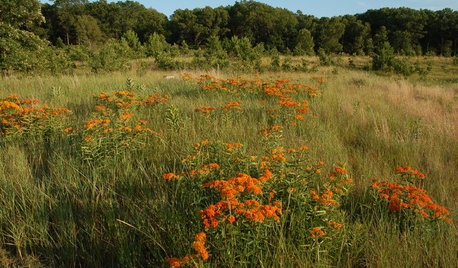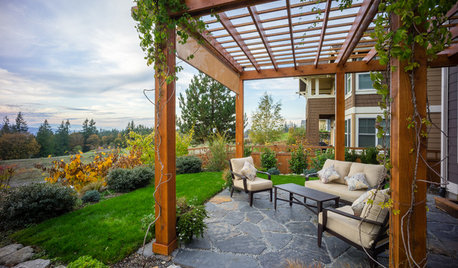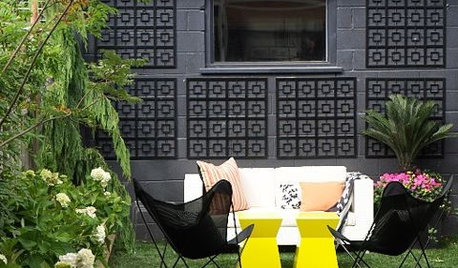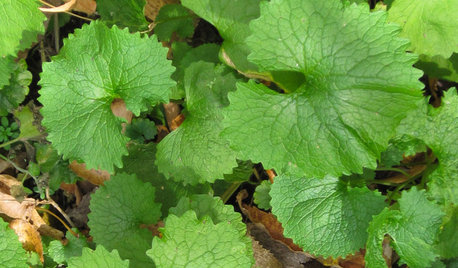Did black plastic mulch fry my tomato plants?
ditnc
10 years ago
Related Stories

EDIBLE GARDENSSummer Crops: How to Grow Tomatoes
Plant tomato seedlings in spring for one of the best tastes of summer, fresh from your backyard
Full Story
GARDENING GUIDESThe Art of Green Mulch
You can design a natural garden that doesn’t rely on covering your soil with wood and bark mulch
Full Story
GARDENING GUIDESHow to Pick a Mulch — and Why Your Soil Wants It
There's more to topdressing than shredded wood. Learn about mulch types, costs and design considerations here
Full Story
FARM YOUR YARDHow to Build a Raised Bed for Your Veggies and Plants
Whether you’re farming your parking strip or beautifying your backyard, a planting box you make yourself can come in mighty handy
Full Story
FALL GARDENINGWhy Fall Is the Best Time for Planting
Spring is overrated for planting. Starting plants in autumn has advantages for both garden and gardener
Full Story
LANDSCAPE DESIGNGet a Knack for Black in the Garden
Dark walls, furniture and foliage do more than add drama in the landscape; they can be strategic design elements
Full Story
GARDENING FOR BUTTERFLIES3 Ways Native Plants Make Gardening So Much Better
You probably know about the lower maintenance. But native plants' other benefits go far beyond a little less watering and weeding
Full Story
GARDENING GUIDESDo You Have This Invasive Plant in Your Yard?
Garlic mustard is spreading across the U.S. Here’s how to spot it and what to do
Full Story
HOUSEPLANTS10 Top Plants to Grow Indoors
Brighten a room and clean the air with a houseplant that cascades artfully, stretches toward the ceiling or looks great on a wall
Full Story
HOUSEPLANTS8 Essentials for Healthy Indoor Plants
Houseplants add so much to our homes — and can thrive when grown in the right conditions. Keep these tips in mind
Full StorySponsored
More Discussions






lionheart_gw (USDA Zone 5A, Eastern NY)
digdirt2
Related Professionals
Rosemount Landscape Contractors · Royal Oak Landscape Contractors · San Antonio Landscape Contractors · Bloomington General Contractors · Cumberland General Contractors · Groveton General Contractors · Lake Forest Park General Contractors · Lakewood General Contractors · Welby Decks, Patios & Outdoor Enclosures · Carlisle Decks, Patios & Outdoor Enclosures · Cedar Falls Decks, Patios & Outdoor Enclosures · Glen Ellyn Decks, Patios & Outdoor Enclosures · Oak Ridge Decks, Patios & Outdoor Enclosures · Oswego Decks, Patios & Outdoor Enclosures · Pueblo West Decks, Patios & Outdoor Enclosureslionheart_gw (USDA Zone 5A, Eastern NY)
luke_oh